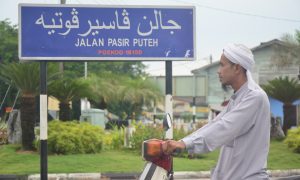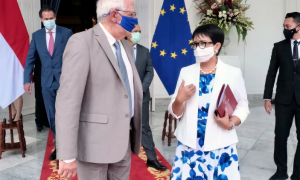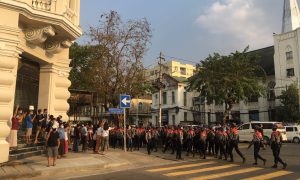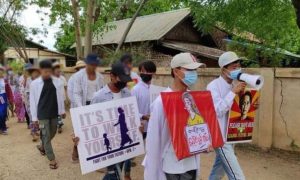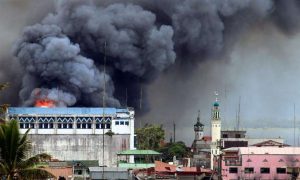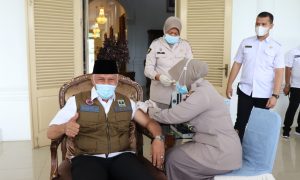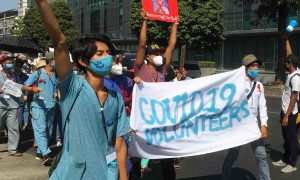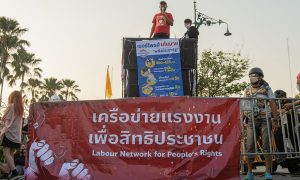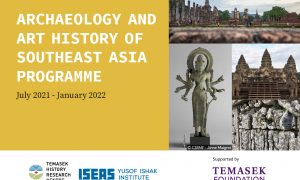The furore over a few seemingly innocuous pages in a textbook provide an indication of just how polarised Malaysian society has become.
Archives
Myanmar: An International Orphan
When an orphan’s extended family fails lamentably, fortunately there is an alternative: turning to your friends. Civil society groups in Southeast Asia increasingly see the combat for Myanmar’s democracy as their own.
A View from the Borderlands: An Interview with Lieutenant Colonel Tar Parn La
On the current political landscape in Myanmar.
Protest Art – AnuPyinNyar
Since the start of the coup, Ku Kue's art has featured front and centre in many protests around the country.
Storytelling, subversion and satire in Tita Salina’s 1001st Island
A utopian vision with glimpses of a dystopian future.
Down, but not out: political violence in the Southern Philippines from 2016-2020
Fluctuations in incident and casualty data belie claims the end of Philippines’ insurgencies is near.
Frontline women: unrecognised leadership in Indonesia’s COVID-19 response
Incorporating women's experiences and skills would improve pandemic responses.
Uneven accountability reform: insights from parliament and bureaucracy in Indonesia
A dysfunctional accountability mechanism inhibits progress.
Myanmar Update 2021: Twin crises – COVID-19 and the coup
While it appears that the military has not changed much over the last decade, the country and its people certainly have.
Thai Workers against Dictatorship?
If the goal is to begin anew the unfinished political project of an equal society, it is thus crucial for democracy activists to secure broader support for the movement.
Temasek History Research Centre: Archaeology and Art History of Southeast Asia Programme webinar series
Comprehensive introductory lectures in Archaeology and Art History of Southeast Asia with a focus on the pre-Modern to the Modern periods.
The price for neutrality is reform and preparedness
The current version of ASEAN is inadequate to implement a robust neutrality enforcement policy that follows a “strong neutrality” and “cohesive neutrality” principle.
 Facebook
Facebook  Twitter
Twitter  Soundcloud
Soundcloud  Youtube
Youtube  Rss
Rss 